6 Powerful Benefits Of Journaling

Some pages feel like home. After a long day of composing emotions and feelings, dumping a few in a secret notebook does wonders. We might underestimate journaling and assume writing isn’t for everyone. But believe me, it is for each and every one of us looking to sort and grow. The benefits of journaling range from potentially improving mental health to increasing one’s efficiency in personal and professional life.
How Does Journaling Help?
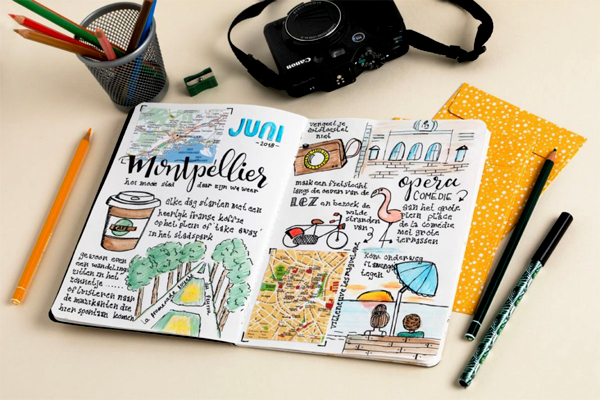
Journaling is not simply writing in your diary like ‘dear diary, today was great, etc.’ It is much more than that. It works as a tool to organize your mental well-being having a positive effect on your physical well-being as well. It helps significantly in reducing anxiety, stress, and depression, giving meaning to your thoughts and emotions, reasoning with certain situations, and giving clarity to your thoughts (overthinking too).
The best part is you never have to stress about confidentiality or force yourself to speak up or react every single time. Journaling has scientifically proven to have positive effects on one’s life. Isn’t it such a creative and convenient way to express yourself?
Last year I gave a webinar on “writing and its effect on personal and professional life.” During the webinar, I came across all age groups and closely listened to their issues. The solution ultimately met at a common point – Journaling. I explained the benefits of it and how it can have positive effects on their lives and bring vast change. I received feedback after a month as promised and they were all literally positive.
Let’s explore the benefits of journaling together!
Stress Management and Reduction

Stress can be very harmful. While some people believe it is a motivator at times, stress can cause some serious damage to your mind and body. People under stress many times do not find the time to cope with it through other effective methods but journaling, being less consuming, can potentially reduce it.
You can begin your day by writing positive affirmations or end your day by writing about what stresses you the most. You can also list your recent goals to accomplish which will help you focus better in order to tick them off resulting in reducing stress. To combat the negative effects of stress, journaling helps boost mental health to cope with stressful situations.
Having a good relationship with your mind and performing mindfulness will help you lead a healthy and happy life. Just make sure to be consistent. Only then you can expect any result from this easy exercise.
Breaking Writer’s Block

One of the tips for getting rid of writer’s block is journaling. It’s hard to seek inspiration from reading and trying to complete articles alone. Scribble anything that comes to your mind; different sentences, topics, anything that crosses your mind. Once you start to pen down your thoughts everyday, you may even realise your reason of writer’s block and ultimately get rid of it.
Achieving and Tracking Goals

A procastinator myself, I find it difficult to remain undistracted and accomplishing my goals. From personal experience, I can say that when you start logging your upcoming goals and tick them off once you complete them, it gives a satisfactory win.
At night, make a list of everything you need to do the next day and give yourself a kudos for previous achievements. This will help you track and prioritize your tasks. Journaling can give you the confidence and assurance of being more organized.
Balancing Emotions
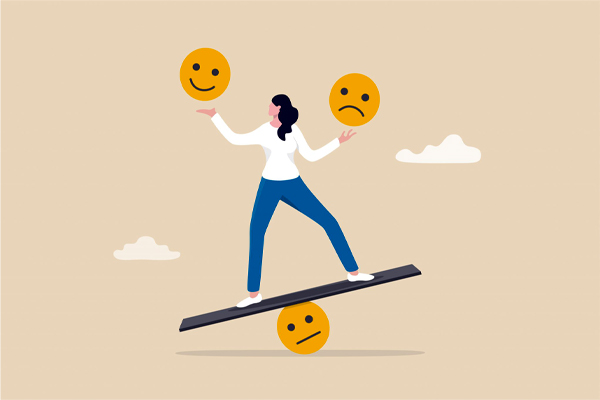
Another benefit of journaling is keeping a track of your emotions and feelings. You can record your triggers and observe what troubles you or gives rise to that anxious, stressful or depressing feeling. You may be able to identify and resolve the issues giving rise to your problems.
When you journal regularly, you become your mind’s best friend and give it a chance to feel lighter and more positive. Emotions cannot be left unattended or suppressed. It is a proven fact that your emotions can mess with your entire body. Hence, please make sure to balance your emotions and try journaling as a way to do so.
Boosting Acceptance, Self-love Through Self-Talk

It’s not always that you need to spill everything onto those pages. Sometimes you can give yourself a powerful self-talk through your own mantras. “I am proud of you”; “You are doing great”; “You can achieve anything in your life”; “You are the best.” Slowly and steadily it opens an explored side of you – your true self.
We often hide behind filters and that true smile gets lost on the way. No matter how hard we try to find ourselves, we feel taken into a storm. However, journaling can help unleash your true self, and take you on the path of self-love and acceptance.
Journaling Reduces Anxiety and Depression

As far as self-improvement is concerned, we cannot limit it to external or spiritual benefits alone. We have to dig deep and get to the root of the problem and resolve it. Are you short tempered? Write down everything that makes you angry, maybe some incidents from your childhood as well. Then write what you wish to do about it. Journal your progress and you will see a positive change in yourself.
Specifically talking about anxiety and depression, we know that they may not always have a reason. However, there are two things you can do – 1. observe write down what triggers you if you do not know the reason; 2. if you know the reason, note it down and express your emotions. This way you can be true to yourself and ultimately give yourself the healing you need.
When you journal regularly, you do give yourself a small pep-talk and motivation. This remarkably reduces anxiety or depression as you understand yourself better and know what will calm you down. Always remember, your mental health has direct effect on your physical health. So make sure that you do journaling everyday for your better self.
SEE ALSO: ASMR for Anxiety – Techniques That Work
How To Start Journaling?
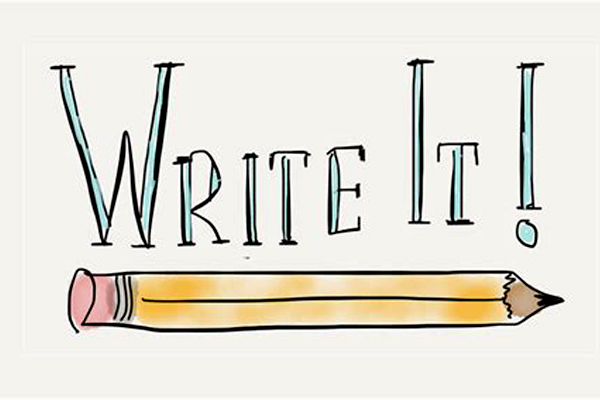
First thing’s first, the benefits of journaling are never-ending. You name a problem, it’s related to mental health, boom, you have to journal to heal. Journaling can reduce blood pressure, improve emotional intelligence, enhance sleep and memory, build self- confidence, inspires creativity, improves relationships, boosts mood, above all, it gives you clarity.
Since I have given you so many reasons to pick your journal right now and start writing, it is also kind of me to give you and understanding on how to journal correctly. There are many prompts to begin journaling but if you wish to start it all by yourself and your own thoughts, here are some tips for it.
First understand why you wish to journal. Yes, it’s important to journal without any reason or just to have a peaceful vent. But if you have a speicific reason like reducing anxious feelings or achieving goals, you have to do it right.
Expressive Writing

First follow the following steps – pick up your dairy and do free-flow writing. make sure to keep it simple, straight and ‘regular.’ Write about anything or you can even get a bit creative. Now comes the expressive writing which requires true efforts. Express your emotions and the elaborate each emotion you are feeling and why. It’s okay to even pen down voices in your head and maybe some reasons along with that.
It can feel a bit intense in the beginning but once you get used to it, you will notice it’s benefits. Even psychologists suggest expressive writing to break down the tough wall your traumas surrounded you with.
Gratitude Writing
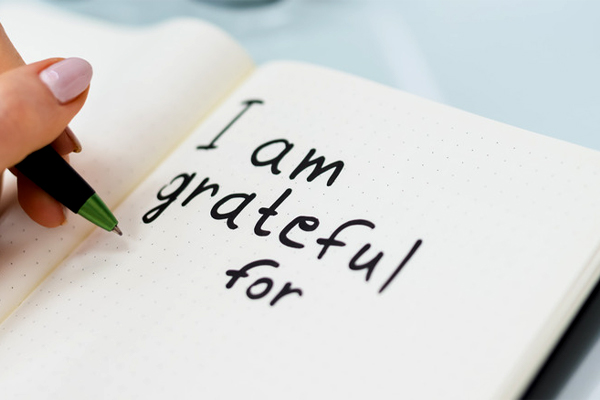
Without gratitude, healing is incomplete. Start a gratitude journal in which you thank everything around you or anything happening with you, including the hard-learned-lessons. It’s beautiful how the universe works and the power of gratitude can fill your Chritsmas sock with unexpected gifts.
So what are you greatful for? The roof on your head, hot cup of coffee in the morning, the gentle breeze that brushes your hair behind, the sun rays full of Vitamin D, your loved ones, your friends, that break up, or losing a lousy job.
SEE ALSO: How Can Mindfulness and Gratitude Practicing Improve Your Behavioral Pattern and Personality?
Best 5 Apps For Journaling
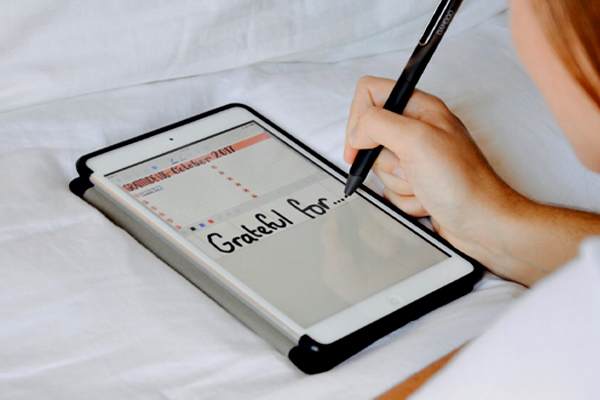
While my personal preffered method of journaling is penning my thoughts on the unever handmade paper bound with a hard cover, people who are more expressive typing can use certain apps to journal. And hey, this can be your new kind of travel journal since you carry your device everywhere (including the washroom I am sure).
Journey
As the name suggests, you can capture your journey anytime on this app. With an attractive interface and layout, you can use this app to capture your thiughts even through images and videos. But this isn’t a free app that ensures it’s unlimited usage. So, if you require something free, this may not be a suitable option for you.
Day One
What’s creative about the app Day One is you can create multiple journals wthin the app. You want to do expressive writing? You got it! Now you want to switch to an organized planner or gratitude journal maybe, you can enjoy the experience seperately. It is the most recommended app till now. Free version is avialable, but to use it’s premium features, you have to make a monthly payment.
Diary
Your dear diary moments should never die. Hence, Diary is an incredible app to capture your thoughts creaitively. Play around with different fonts, colors, backgrounds, and even emojis. The best part is, it if absolutely free of cost. However, it is not avialable in iOS. You can also share your jornal entries with friends and family via text or email.
Daylio
It is a unique app for those who wish to journal without words. Crazy, isn’t it? You can simply express your thoughts through beautiful icons and add additional small notes as well. It’s simply a good record keeping of how yu felt on a certain day and why. It is also free of cost.
Five Minute Journal
This app is especially great for beginners who are not habitual of expressing much but are willing to add journaling in their schedule. Five Minute Journal makes it easier for the users to stay consistent by asking 3 questions in the morning that one can answer quickly and attempt gratitude. Then in the evening it will ask two more questions about two positive things that happened and how you can improvise the next day.
All these questions are simpy one-liners and one will literally take 5 minutes to answer them. This app can be a great start and a big change. Free and paid versions both are avialable as er your requirements.





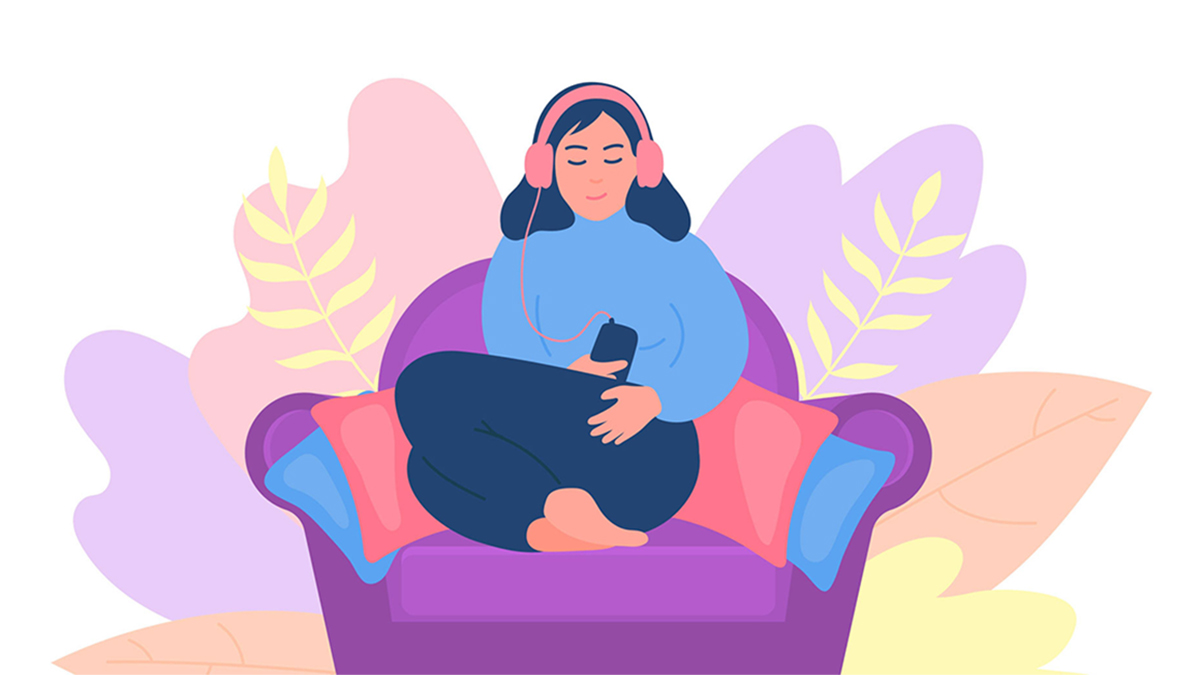


2 comments